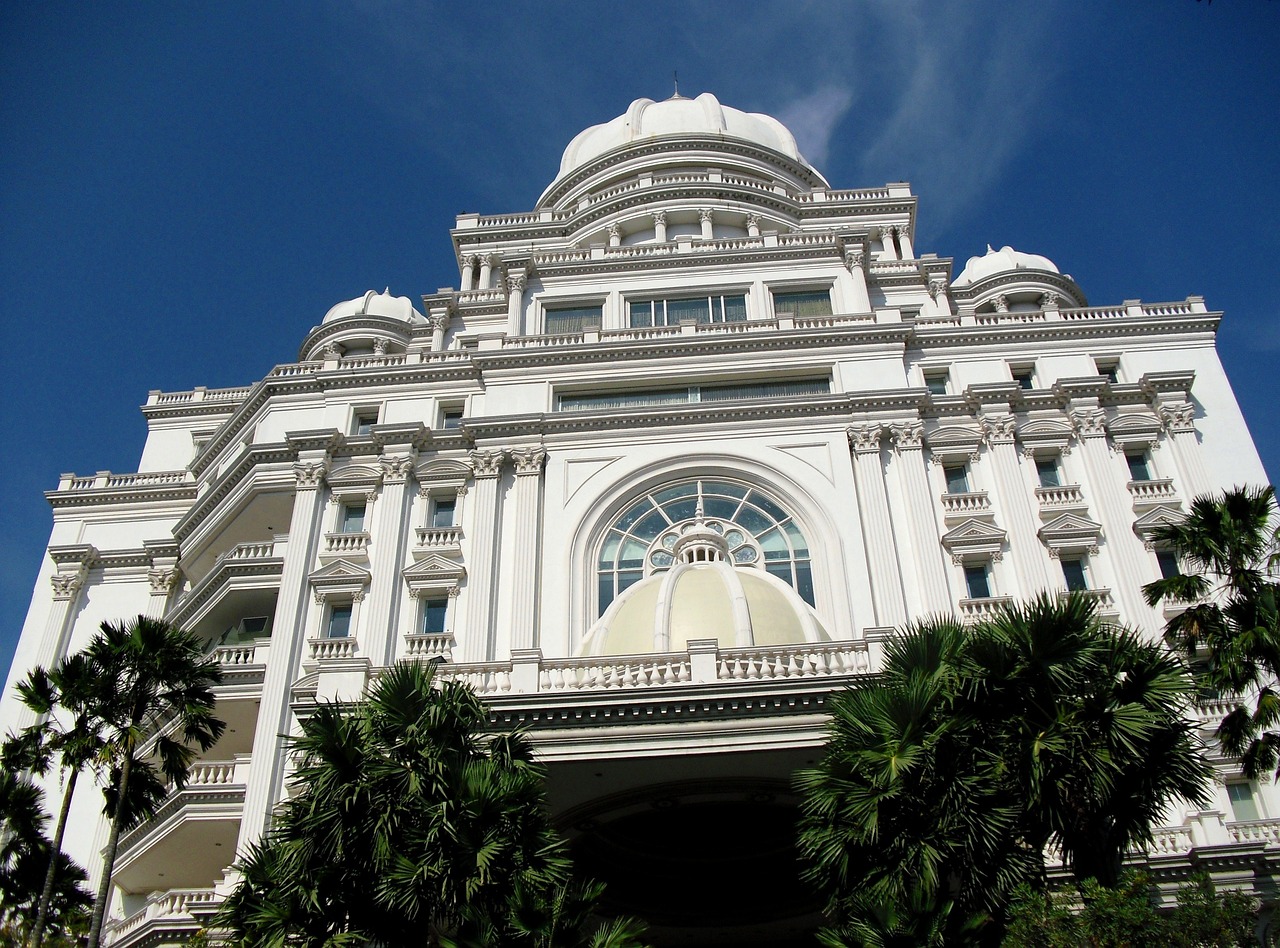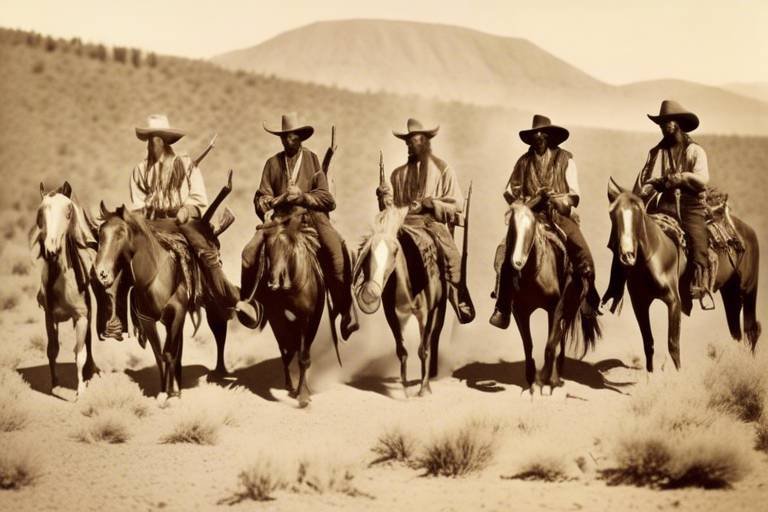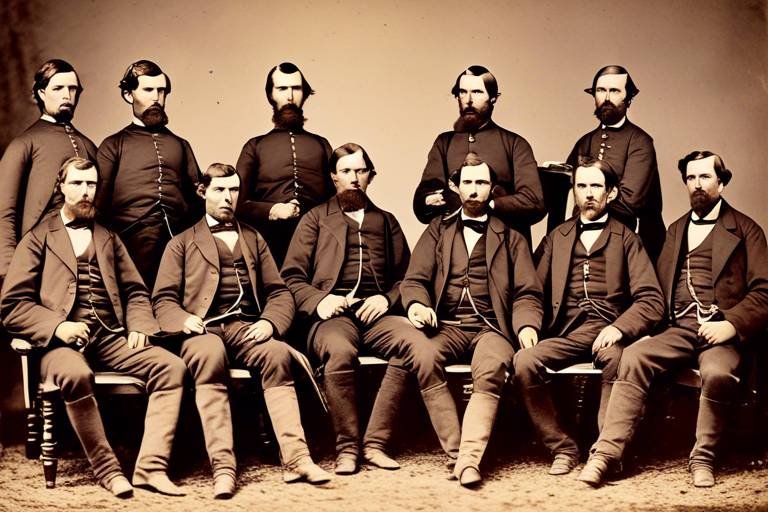The Age of Imperialism - Colonization and Its Effects
During the era of imperialism, powerful nations embarked on a quest to expand their influence by colonizing territories across the globe. This period marked a significant chapter in history, shaping the destinies of nations and leaving a profound impact on societies, economies, and cultures worldwide.
Imperialism was fueled by a complex interplay of factors that drove nations to seek domination over foreign lands. Economic interests played a pivotal role, as countries sought to exploit resources, establish lucrative trade routes, and secure markets for their goods. Political competition and the quest for strategic military advantages also motivated imperial powers, alongside the desire for national prestige and glory.
To establish control over colonized territories, imperial powers employed a variety of methods. Military conquest was a common strategy, backed by the might of powerful armies and advanced weaponry. Treaties were often used to legitimize colonial rule, while economic dominance through monopolies and trade agreements further solidified control. Cultural assimilation was another tool, as colonial powers sought to impose their values, languages, and customs on indigenous populations.
Despite facing formidable challenges, indigenous peoples and nationalist movements mounted resistance against colonial rule. These efforts aimed to reclaim autonomy, preserve cultural identities, and uphold traditional ways of life in the face of external pressures. Resistance movements played a crucial role in shaping the course of history and challenging the oppressive forces of imperialism.
The economic exploitation of colonized regions was a defining feature of imperialism, characterized by the extraction of resources, imposition of forced labor systems, and establishment of unequal trade relationships. This exploitation led to the development of dependent economies that served the interests of colonial powers, perpetuating cycles of poverty and underdevelopment in colonized territories.
Colonization also brought about profound social and cultural transformations in colonized societies. Social hierarchies were reshaped, cultural exchange occurred, and Western ideologies spread across the globe. Language imposition and the dissemination of new beliefs and practices contributed to the blending of cultures and the emergence of hybrid identities in the wake of colonial encounters.
The legacy of imperialism continues to reverberate in former colonies, manifesting in political instability, economic disparities, social divisions, and cultural hybridity. The ongoing struggle for decolonization and self-determination remains a pressing issue for many nations, as they seek to address the enduring effects of colonialism and forge new paths towards sovereignty and equality.
Imperial rivalries between powerful nations fueled competition and conflicts over territories, resources, and spheres of influence. Diplomatic tensions, proxy wars, and the reshaping of global power dynamics were common outcomes of these rivalries, as countries vied for supremacy and control in a rapidly changing world.
The waves of decolonization that swept across the globe in the 20th century marked a significant turning point in history. Colonies gained independence, nations reclaimed sovereignty, and movements for liberation and equality reshaped the post-colonial world order. These struggles continue to shape contemporary geopolitics and the quest for a more just and equitable global society.

Causes of Imperialism
Exploring the period of imperialism when powerful nations expanded their influence by colonizing territories around the world, and examining the lasting impact of colonization on societies, economies, and cultures.
Imperialism, the practice of extending a nation's power and influence through colonization, was driven by a complex interplay of factors that shaped the course of history. One of the primary causes of imperialism was the pursuit of economic interests. Industrialized nations sought new markets for their goods and sources of raw materials to fuel their industries, leading to the colonization of regions rich in resources.
Additionally, political competition among European powers played a significant role in the era of imperialism. Nations vied for supremacy and sought to expand their empires to increase their influence and prestige on the global stage.
Strategic military advantages also motivated imperialist endeavors, as control over strategic locations provided strategic military benefits such as naval bases and trade routes. This military aspect of imperialism was crucial in securing dominance over key regions.
Moreover, the desire for national prestige fueled the expansionist ambitions of many nations. The acquisition of colonies was seen as a symbol of power and greatness, enhancing a nation's status and influence in the international arena.

Methods of Colonization
During the era of imperialism, powerful nations utilized various methods to establish control over foreign territories and expand their influence. One of the primary methods employed was military conquest, where imperial powers used their superior military strength to subjugate and occupy territories. This often involved violent conflicts and the suppression of local resistance movements to assert dominance.
Additionally, treaties were another common method used by imperial powers to legitimize their control over foreign lands. Through coercive or unequal treaties, colonial powers forced indigenous leaders to cede their territories or grant exclusive trading rights, thereby solidifying their influence without direct military intervention.
Economic dominance played a crucial role in colonization, as imperial nations sought to exploit the resources and markets of their colonies for economic gain. This involved establishing monopolies over key industries, imposing tariffs and trade restrictions to benefit the colonizers, and integrating the colonial economies into the global market system in a way that favored the imperial powers.
Cultural assimilation was another method used by colonial powers to exert control over indigenous populations. By imposing Western values, languages, and customs, imperial nations sought to reshape the cultural identities of the colonized peoples and promote loyalty to the colonizers. This often led to the erosion of traditional beliefs and practices, as well as the marginalization of local cultures.
Furthermore, some imperial powers employed indirect rule strategies, where they appointed local collaborators or puppet rulers to govern on their behalf. This approach allowed colonial powers to maintain control while minimizing direct involvement, often leading to the exploitation and manipulation of local power structures for the benefit of the colonizers.

Resistance Movements
Exploring the period of imperialism when powerful nations expanded their influence by colonizing territories around the world, and examining the lasting impact of colonization on societies, economies, and cultures.
During the era of imperialism, resistance movements emerged as indigenous peoples and nationalist groups fought against colonial rule to reclaim autonomy and preserve their cultural identities. These movements were fueled by a deep-seated desire to resist the oppressive policies and practices imposed by imperial powers.
Indigenous communities across colonized regions organized themselves to resist the encroachment of foreign powers on their lands and resources. Through acts of defiance and rebellion, they sought to protect their way of life and maintain control over their territories.
Nationalist movements, inspired by a sense of patriotism and a desire for self-determination, mobilized against colonial authorities to assert their independence and sovereignty. These movements galvanized support from the local population and often led to widespread protests and uprisings.
Resistance took various forms, from armed conflicts and guerrilla warfare to nonviolent protests and civil disobedience. Leaders of these movements emerged as symbols of defiance and resilience, rallying their people to stand against the injustices of colonial rule.
The resilience and determination of these resistance movements played a crucial role in shaping the course of history, challenging the dominance of imperial powers and paving the way for eventual decolonization and the restoration of independence to oppressed nations.

Economic Exploitation
During the era of imperialism, economic exploitation was a central aspect of colonial rule, shaping the relationship between colonizers and colonized societies. Imperial powers implemented various methods to extract resources, establish economic dominance, and exploit the labor force of the colonized regions. This economic exploitation played a significant role in fueling the industrial revolutions of the colonizing nations while impoverishing and destabilizing the economies of the colonies.
One of the primary mechanisms of economic exploitation was the extraction of natural resources from the colonies. Rich in minerals, agricultural products, and other valuable commodities, the colonies served as sources of cheap raw materials for the industries of the imperial powers. This resource extraction was often carried out through coercive means, with local populations forced into labor-intensive industries such as mining, agriculture, and forestry.
Furthermore, imperial powers established unequal trade relationships that heavily favored the colonizers. Through tariffs, trade restrictions, and monopolies, the colonies were compelled to export their resources at low prices to the colonizers, while importing finished goods at inflated costs. This exploitative trade system further entrenched the economic dependency of the colonies on the imperial metropoles, hindering their economic development and self-sufficiency.
Forced labor systems were another form of economic exploitation employed by colonial powers to maximize their profits. Indigenous populations were often coerced into labor camps, plantations, and industrial facilities, where they toiled under harsh conditions for meager wages or no compensation at all. The exploitation of cheap labor allowed the colonizers to reduce production costs, increase their profits, and maintain control over the economic activities of the colonies.
The development of dependent economies in the colonies was a direct result of economic exploitation by imperial powers. By discouraging local industries, imposing restrictions on economic diversification, and prioritizing the interests of the colonizers, the colonies became reliant on the imports and investments from the metropoles. This economic subordination perpetuated underdevelopment, poverty, and social inequality in the colonized societies, perpetuating the cycle of exploitation and dependency.

Social and Cultural Impact
Exploring the period of imperialism when powerful nations expanded their influence by colonizing territories around the world, and examining the lasting impact of colonization on societies, economies, and cultures.
During the era of imperialism, the social and cultural impact of colonization was profound, reshaping societies and traditions in significant ways. Colonizers often imposed their customs, languages, and beliefs on indigenous populations, leading to a clash of cultures and the erosion of traditional practices. The power dynamics shifted, creating new social hierarchies where the colonizers held superior positions, influencing the local population's way of life.
Furthermore, the spread of Western ideologies and values through education and media played a pivotal role in altering the cultural landscape of colonized regions. This cultural exchange, although not always harmonious, contributed to the emergence of hybrid identities blending indigenous and colonial influences.
Language imposition was another key aspect of the social and cultural impact of imperialism. Colonizers enforced their languages as the official means of communication, often marginalizing local languages and diminishing cultural diversity. This linguistic dominance had long-lasting effects on the identity and heritage of indigenous communities.
Moreover, the introduction of new technologies, industries, and urban centers by the imperial powers brought about significant societal changes, transforming traditional economies and social structures. The shift towards cash crops and industrial production disrupted existing economic systems, leading to dependency on the colonial rulers for trade and economic stability.
Overall, the social and cultural impact of imperialism was a complex interplay of domination, resistance, adaptation, and transformation, leaving a lasting legacy that continues to shape the cultural identities and social dynamics of former colonies to this day.
- What were the main causes of imperialism?
- How did resistance movements challenge colonial rule?
- What were the economic consequences of colonization?
- How did imperialism influence social hierarchies and cultural exchange?
- What is the legacy of imperialism on former colonies?

Legacy of Imperialism
When we delve into the legacy of imperialism, we uncover a complex web of consequences that continue to shape the world we live in today. The impact of colonization reverberates through time, leaving behind a trail of political, economic, social, and cultural remnants that have deeply influenced the course of history.
One of the most significant legacies of imperialism is the enduring political instability that plagues many former colonies. The arbitrary borders drawn by colonial powers often disregarded existing tribal or ethnic boundaries, leading to ongoing conflicts and power struggles long after independence was achieved. These artificial divisions have sown seeds of discord that continue to fuel tensions and violence in various regions.
Moreover, the economic disparities created during the era of imperialism still persist, with many former colonies grappling with underdevelopment, poverty, and dependence on former colonial masters. The extraction of resources, establishment of exploitative trade relationships, and imposition of unfavorable economic structures have left a lasting mark on the economic landscape of these nations.
On a social level, the legacy of imperialism is evident in the deep-rooted social divisions that continue to plague societies. The imposition of Western ideologies, social hierarchies, and cultural norms has led to a clash of traditions and values, often resulting in identity crises and cultural erosion. The struggle to reconcile traditional beliefs with modern influences remains a constant challenge for many communities.
Culturally, imperialism has left a mark through the imposition of colonial languages, customs, and beliefs, leading to a fusion of cultures that is both enriching and contentious. The legacy of cultural hybridity is visible in the diverse tapestry of traditions, languages, and practices that form the fabric of post-colonial societies, reflecting a complex interplay of influences and identities.
Despite the challenges posed by the legacy of imperialism, there is also resilience and a spirit of resistance that characterizes many post-colonial nations. The ongoing struggle for decolonization, self-determination, and the preservation of cultural heritage serves as a testament to the enduring legacy of imperialism and the indomitable spirit of those who seek to reclaim their autonomy and shape their own destinies.

Imperial Rivalries
During the age of imperialism, were a prominent feature of global politics. Powerful nations vied for control over territories, resources, and spheres of influence, leading to intense competition and conflicts. These rivalries often manifested in diplomatic tensions, proxy wars, and the reshaping of global power dynamics.
The quest for dominance and expansion drove imperial powers to engage in strategic maneuvers to outmaneuver their competitors. Rivalry was not only about territorial acquisition but also about asserting influence and prestige on a global scale. Nations sought to bolster their economic interests, secure key trade routes, and establish military footholds in strategic locations.
The Scramble for Africa exemplified the fierce competition among European powers for colonial territories in the late 19th century. The carving up of the African continent through diplomatic negotiations and military conquests reflected the intense rivalries between nations seeking to exploit the vast resources and markets available in Africa.
Imperial rivalries often led to conflicts and confrontations between competing powers. The geopolitical maneuvering and jostling for supremacy created a volatile environment where alliances shifted, tensions escalated, and the specter of war loomed large. The quest for dominance fueled a cycle of aggression and retaliation among imperial powers.
The balance of power in international relations was constantly in flux as nations sought to assert their dominance and secure their interests. Rivalries played out not only in overt military actions but also in subtle diplomatic maneuvers and economic competition. The intricate web of alliances and rivalries shaped the course of world history and set the stage for future conflicts.
Ultimately, imperial rivalries highlighted the complex interplay of interests and ambitions among powerful nations vying for supremacy in a rapidly changing world. The legacy of these rivalries continues to influence global politics, shaping contemporary relations and dynamics between nations.

Decolonization Movements
Decolonization movements marked a significant shift in the global political landscape during the 20th century. As colonies across Africa, Asia, and the Caribbean sought independence from imperial powers, a wave of liberation movements emerged, advocating for self-governance and the end of colonial rule. These movements were fueled by a desire for autonomy, equality, and the right to determine their own destinies.
One of the key aspects of decolonization was the rise of nationalist leaders who galvanized support for independence through non-violent protests, civil disobedience, and diplomatic negotiations. Figures like Mahatma Gandhi in India, Kwame Nkrumah in Ghana, and Nelson Mandela in South Africa became iconic symbols of resistance against colonial oppression, inspiring millions to join the fight for freedom.
The decolonization process was complex and varied in different regions, with some countries achieving independence peacefully through constitutional means, while others engaged in armed struggles against colonial powers. The dismantling of colonial empires led to the redrawing of national boundaries, the establishment of new governments, and the formation of independent states, laying the foundation for a new era of post-colonial governance.
Despite the formal end of colonial rule, many newly independent nations faced challenges in building stable governments, managing diverse populations, and overcoming the legacies of exploitation and division left by imperialism. The transition from colonial subjects to citizens of sovereign states was accompanied by struggles for economic development, social justice, and political stability, as well as efforts to reconcile past injustices and heal the wounds of colonialism.
Decolonization movements also sparked debates about national identity, cultural heritage, and the role of indigenous traditions in shaping modern societies. The process of decolonization involved reclaiming indigenous languages, reviving traditional customs, and reinterpreting historical narratives from a post-colonial perspective, highlighting the resilience and creativity of formerly colonized peoples in asserting their distinct identities and asserting their place in the global community.
Frequently Asked Questions
- What were the main causes of imperialism?
Imperialism was primarily driven by economic interests, political competition, strategic military advantages, and the pursuit of national prestige. Powerful nations sought to expand their influence and control over foreign territories for these reasons.
- How did imperial powers establish control over colonies?
Imperial powers used various methods such as military conquest, signing treaties with local leaders, imposing economic dominance through trade agreements, and promoting cultural assimilation to establish control over colonies.
- What were the resistance movements against colonial rule?
Resistance movements included efforts by indigenous peoples and nationalist groups to resist colonial oppression, regain autonomy, and preserve their cultural identities and traditional ways of life. These movements played a crucial role in the fight against imperialism.
- How did imperialism impact the economies of colonized regions?
Imperial powers exploited colonized regions economically through resource extraction, forced labor systems, establishing unequal trade relationships, and creating dependent economies that served the interests of the colonizers, leading to long-lasting economic disparities.
- What were some of the social and cultural effects of colonization?
Colonization brought about significant social and cultural changes, including shifts in social hierarchies, cultural exchange between colonizers and the colonized, imposition of Western languages and ideologies, and the blending of cultures that shaped the identities of both the colonizers and the colonized.
- What is the legacy of imperialism on former colonies?
The legacy of imperialism includes political instability, economic inequalities, social divisions, cultural hybridity resulting from the blending of cultures, and ongoing struggles for decolonization and self-determination as former colonies continue to grapple with the impacts of colonial rule.
- How did imperial rivalries impact global power dynamics?
Imperial rivalries led to competition and conflicts between powerful nations for control over territories, resources, and spheres of influence, resulting in diplomatic tensions, proxy wars, and significant shifts in global power dynamics that shaped the course of history.
- What were the key features of decolonization movements in the 20th century?
Decolonization movements in the 20th century marked a wave of independence for colonies, as nations reclaimed sovereignty, fought for liberation and equality, and reshaped the post-colonial world order by asserting their right to self-governance and independence from colonial powers.



















